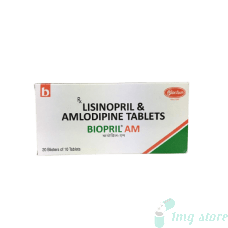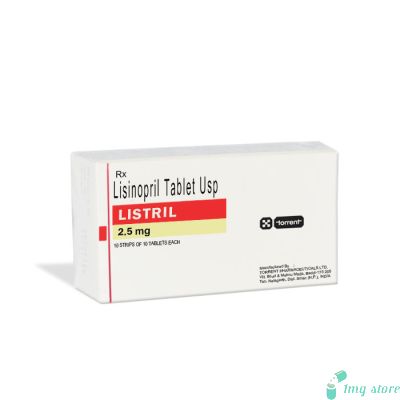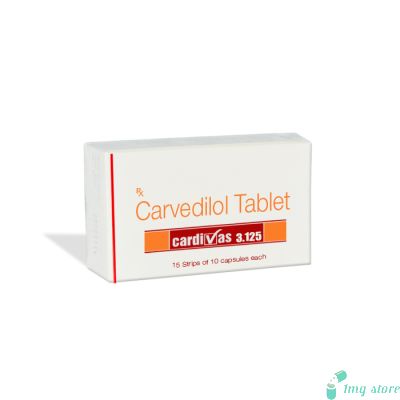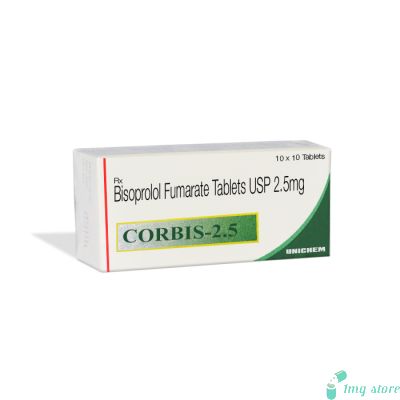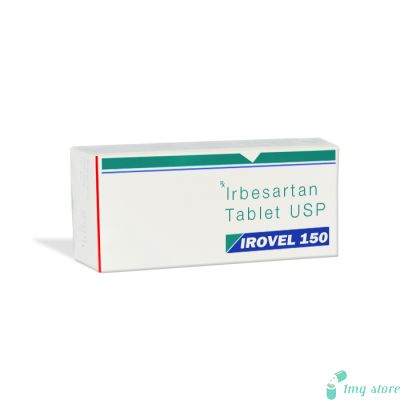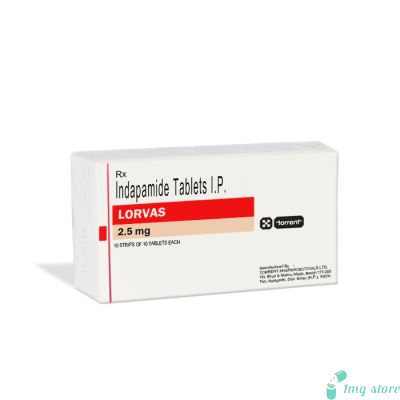Generic Lisinopril (Angiotensin Tablet)
Generic Lisinopril, also known as Angiotensin Tablet, is a widely prescribed medication in the realm of cardiovascular health. It belongs to the class of drugs known as ACE inhibitors, specifically designed to manage high blood pressure and promote heart health. Prinivil is another brand name for Lisinopril.
Generic Lisinopril (Angiotensin Tablet): Unraveling the Hypertension Solution
Hypertension, commonly known as High Blood Pressure, is a global health concern affecting millions of individuals. Left untreated, it can lead to severe health complications, including heart disease, stroke, and kidney problems. Fortunately, medical science offers a range of effective treatments, and one such solution is Lisinopril Tablet, a medication that belongs to the class of drugs known as angiotensin-converting enzyme (ACE) inhibitors. In this comprehensive guide, we will explore the role of angiotensin in blood pressure regulation, delve into the specifics of Lisinopril Tablet, and provide essential information on its dosage, missed doses, and overdose scenarios. Additionally, we will discuss alternative options to Lisinopril Tablet and where to purchase them, ensuring that you have a well-informed approach to managing hypertension. It is also sold under the brand name Prinivil.
Lisinopril Tablet Dosage: Finding the Right Balance for Hypertension Control
Lisinopril Tablet is a vital component in the management of hypertension, working by relaxing blood vessels and reducing the workload on the heart, thereby lowering blood pressure. The appropriate dosage of Lisinopril Tablet can vary depending on individual factors such as age, medical history, and the severity of hypertension. It is crucial to follow your healthcare provider's recommendations carefully to achieve optimal results and minimize potential side effects.
The standard starting dose for most adults is typically 10 milligrams (mg) taken orally once a day. However, your doctor may adjust the dose based on your response to the medication. It is important to take Lisinopril Tablet regularly, even if you feel well, as high blood pressure often presents no symptoms.
What to Do If You Miss a Dose of Lisinopril Tablet
Consistency in medication adherence is essential for effectively managing hypertension. If you happen to miss a dose of Lisinopril Tablet, it is essential to take the missed dose as soon as you remember. However, if it is close to the time for your next scheduled dose, skip the missed one and continue with your regular dosing schedule. Never double up on doses to make up for a missed one, as this can increase the risk of side effects.
Recognizing and Dealing with Lisinopril Tablet Overdose
While it is essential to adhere to your prescribed Lisinopril Tablet dosage, accidental overdose can occur, which can be potentially dangerous. Symptoms of an overdose may include dizziness, fainting, extreme weakness, confusion, rapid or irregular heartbeat, and even kidney failure in severe cases.
If you suspect that you or someone else has taken an overdose of Lisinopril Tablet, seek immediate medical attention. Call your local poison control center or emergency services for assistance. It is crucial not to delay treatment, as prompt medical intervention can help mitigate the effects of an overdose and prevent severe complications.
Lisinopril Tablet Alternatives:
Exploring Alternatives to Lisinopril Tablet for Hypertension Management
While Lisinopril Tablet is a commonly prescribed medication for hypertension, it is not the only option available. Your healthcare provider may consider alternative treatments based on your specific needs and medical history. Some of the alternatives to Lisinopril Tablet for managing hypertension include:
- Diuretics.
- Calcium Channel Blockers
- Beta-Blockers
- ARBs (Angiotensin II Receptor Blockers)
It's important to discuss these alternatives with your healthcare provider to determine the most suitable treatment plan for your individual needs and health profile. Keep in mind that lifestyle modifications, including dietary changes, exercise, and stress management, often complement medication therapy for effective hypertension management.
Lisinopril Tablet for Hypertension:
Lisinopril Tablet, a member of the ACE inhibitor class of medications, has been a cornerstone in the treatment of hypertension for decades. Its mechanism of action involves targeting the angiotensin-converting enzyme (ACE), an essential player in the renin-angiotensin-aldosterone system (RAAS) responsible for blood pressure regulation.
By inhibiting ACE, Lisinopril Tablet effectively lowers blood pressure through two primary mechanisms:
Vasodilation: Lisinopril Tablet relaxes blood vessels, reducing their constriction. This relaxation allows blood to flow more freely, lowering blood pressure.
Aldosterone Suppression: By blocking ACE, Lisinopril Tablet also suppresses the production of aldosterone, a hormone that causes the kidneys to retain sodium and water. Lower aldosterone levels result in decreased blood volume, which further contributes to blood pressure reduction.
Lisinopril Tablet is commonly prescribed as a first-line treatment for hypertension due to its efficacy and relatively low incidence of side effects. However, as with any medication, individual responses may vary, and it is essential to work closely with a healthcare provider to monitor blood pressure and adjust the treatment plan as needed.
Lisinopril Tablet Generic:
Generic medications, including generic Lisinopril Tablet, are bioequivalent versions of their brand-name counterparts. They contain the same active ingredient, have the same dosage forms and strengths, and undergo rigorous testing by regulatory authorities to ensure safety and efficacy. Generic medications are often more affordable than brand-name drugs, making them an attractive option for individuals seeking cost-effective hypertension management.
Some of the precautionary measures to be taken while using Generic Lisinopril (Angiotensin Tablet)
Lisinopril Tablet is a potent medication used to manage hypertension and various other medical conditions. However, it's crucial to take precautions to ensure its safe and effective use:
- Pregnancy and Breastfeeding: If you are pregnant or planning to become pregnant, consult your healthcare provider before using Lisinopril Tablet/Prinivil. It may cause harm to the developing fetus. Similarly, if you are breastfeeding, discuss the risks and benefits with your healthcare provider, as Lisinopril may pass into breast milk.
- Kidney Function: Lisinopril Tablet is excreted primarily through the kidneys. If you have kidney disease or reduced kidney function, your healthcare provider may adjust your dosage or choose an alternative medication to prevent potential complications.
- Allergies: Inform your healthcare provider of any known allergies to Lisinopril or other ACE inhibitors. Allergic reactions, though rare, can occur and may manifest as swelling of the face, lips, or tongue, difficulty breathing, or skin rash. Seek immediate medical attention if you experience these symptoms.
- Potassium Supplements: Lisinopril Tablet can increase blood potassium levels. Avoid excessive consumption of potassium-rich foods or supplements while taking this medication, as it may lead to hyperkalemia, a condition characterized by dangerously high potassium levels in the blood.
- Dehydration and Sodium Depletion: Lisinopril can cause a drop in blood pressure, which may be more pronounced in individuals with dehydration or low sodium levels. It is essential to maintain proper hydration and sodium balance while taking this medication, especially in hot weather or if you have been vomiting or experiencing diarrhea.
Generic Lisinopril (Angiotensin Tablet) is prescribed for various medical conditions, with its primary use being the management of hypertension.
- Hypertension (High Blood Pressure): Lisinopril Tablet/Prinivil helps lower blood pressure by relaxing blood vessels, making it easier for the heart to pump blood. This reduces the risk of heart attacks, strokes, and other cardiovascular complications associated with high blood pressure.
- Heart Failure: In individuals with heart failure, Lisinopril Tablet can improve the heart's pumping efficiency, reducing symptoms such as shortness of breath and fluid retention.
- Post-Heart Attack Care: Lisinopril Tablet is often prescribed following a heart attack to prevent further cardiac damage and improve survival rates.
- Diabetic Nephropathy: In individuals with diabetes, Lisinopril Tablet can slow the progression of kidney damage and protect kidney function.
- Left Ventricular Dysfunction: Lisinopril Tablet is used to treat left ventricular dysfunction in patients with asymptomatic severe left ventricular systolic dysfunction.
Here are potential side effects to be aware of Generic Lisinopril (Angiotensin Tablet)
While Lisinopril Tablet is generally well-tolerated, it can cause side effects in some individuals.
- Cough: A persistent dry cough is a common side effect of Lisinopril Tablet. If you experience this symptom, consult your healthcare provider, as they may need to switch you to an alternative medication.
- Low Blood Pressure: Lisinopril Tablet can cause a drop in blood pressure, leading to dizziness, lightheadedness, or fainting, especially when standing up quickly. Rise slowly from a sitting or lying position to minimize this risk.
- Elevated Blood Potassium Levels: Lisinopril Tablet can lead to hyperkalemia, characterized by high blood potassium levels. This can cause muscle weakness, irregular heartbeat, and potentially life-threatening cardiac arrhythmias.
- Kidney Function Changes: Some individuals may experience changes in kidney function, especially if they have pre-existing kidney issues. Your healthcare provider will monitor your kidney function through blood tests.
- Angioedema: In rare cases, Lisinopril Tablet can cause angioedema, a severe swelling of the deeper layers of the skin, often around the eyes and lips. This requires immediate medical attention.
It's essential to report any unusual or severe side effects to your healthcare provider promptly. They can adjust your treatment plan or recommend alternative medications if necessary.
Frequently Asked Queries About Generic Lisinopril (Angiotensin Tablet)
Q1. Can a Lisinopril Tablet/Prinivil be taken with food?
Answer: Yes, Lisinopril Tablet can be taken with or without food. However, it's essential to maintain a consistent routine regarding food intake to ensure consistent medication absorption.
Q2. Are there any specific lifestyle changes I should make while taking Lisinopril Tablet for hypertension?
Answer: Yes, maintaining a heart-healthy lifestyle is crucial. This includes a low-sodium diet, regular exercise, limiting alcohol, and avoiding tobacco. Consult your healthcare provider for personalized recommendations.
Q3. Can I continue taking over-the-counter pain relievers like ibuprofen while on Lisinopril Tablet?
Answer: You should consult your healthcare provider before using non-prescription pain relievers like ibuprofen regularly. They can advise you on safe alternatives and potential interactions.
Q4. How long does it typically take for Lisinopril Tablet to start lowering blood pressure?
Answer: You may start to see a reduction in blood pressure within a few hours of taking Lisinopril Tablet, with full effects typically achieved within a few weeks.
Q5. Is Lisinopril Tablet the only medication available to manage high blood pressure, or are there other options?
Answer: There are several other medications available to manage high blood pressure, including diuretics, beta-blockers, calcium channel blockers, and angiotensin II receptor blockers (ARBs). Your healthcare provider will determine the most suitable treatment based on your specific needs.
Understanding potential drug interactions is vital to ensure the safe use of Generic Lisinopril (Angiotensin Tablet)
- Potassium-Sparing Diuretics: Combining Lisinopril Tablet with potassium-sparing diuretics like spironolactone or amiloride can lead to hyperkalemia (high blood potassium levels). Your healthcare provider may monitor your potassium levels closely or adjust your medications accordingly.
- Nonsteroidal Anti-Inflammatory Drugs (NSAIDs): NSAIDs such as ibuprofen and naproxen can reduce the effectiveness of Lisinopril Tablet and may impair kidney function, especially in individuals with pre-existing kidney issues. Consult your healthcare provider before using NSAIDs regularly.
- Lithium: Lithium, used to treat bipolar disorder, can interact with Lisinopril, leading to increased lithium levels in the blood. This can be toxic. Your lithium levels may need monitoring if you take both medications.
- Alcohol: Consuming alcohol while on Lisinopril Tablet can lead to a drop in blood pressure, dizziness, and an increased risk of fainting. Limit alcohol intake and consult your healthcare provider for specific guidelines.
- Other Antihypertensive Medications: Combining Lisinopril Tablet with other antihypertensive drugs, such as beta-blockers or calcium channel blockers, can further lower blood pressure. Your healthcare provider will carefully monitor your blood pressure and adjust your medications as needed.
| Manufacturer | : | Healing Pharma |
| Equivalent Brand | : | Prinivil |
| Generic Search | : | Lisinopril |









